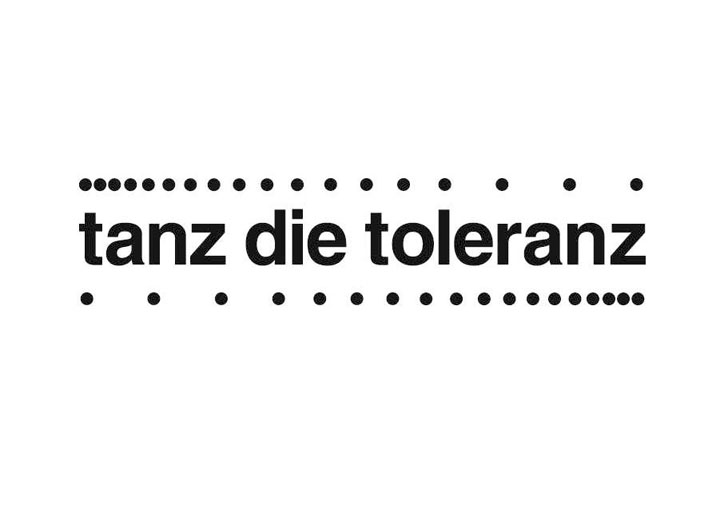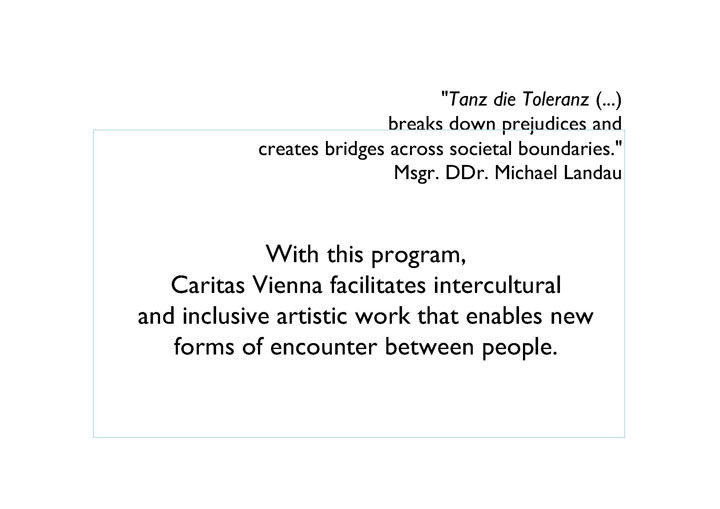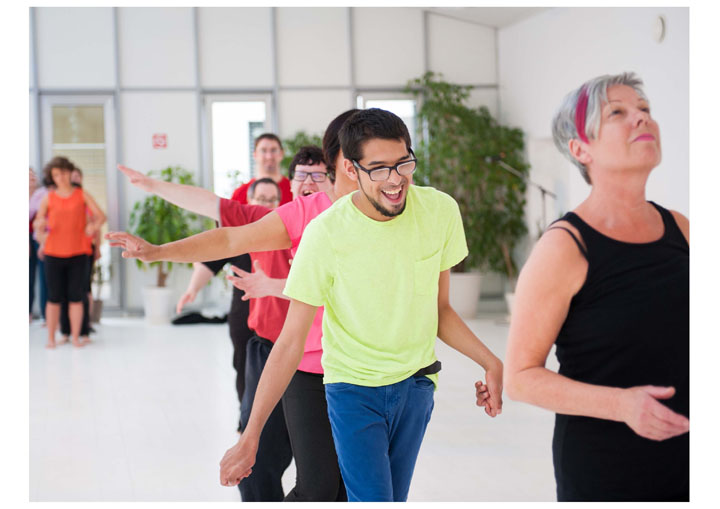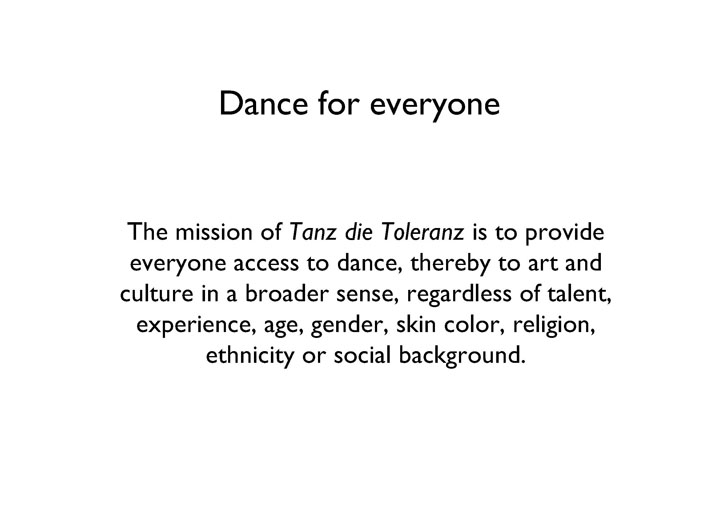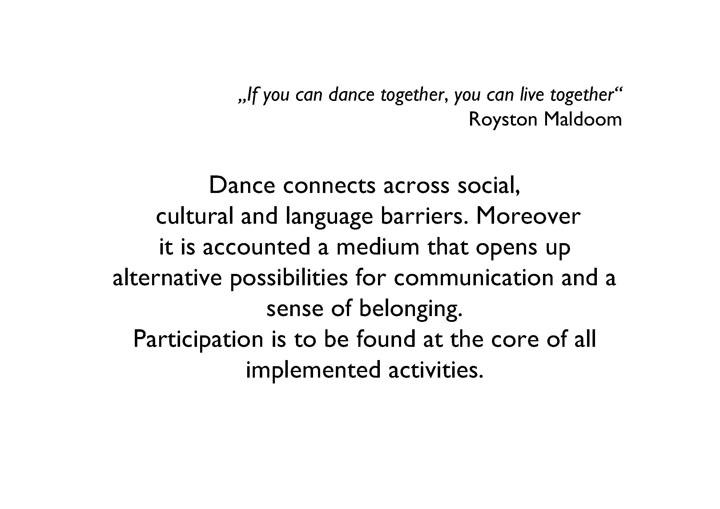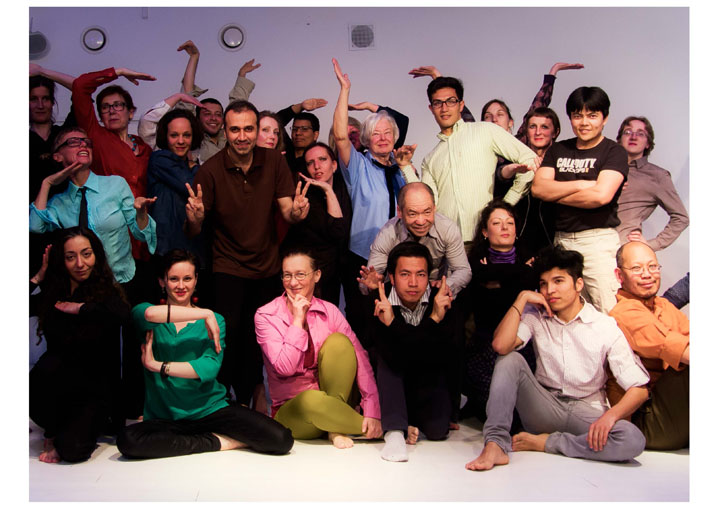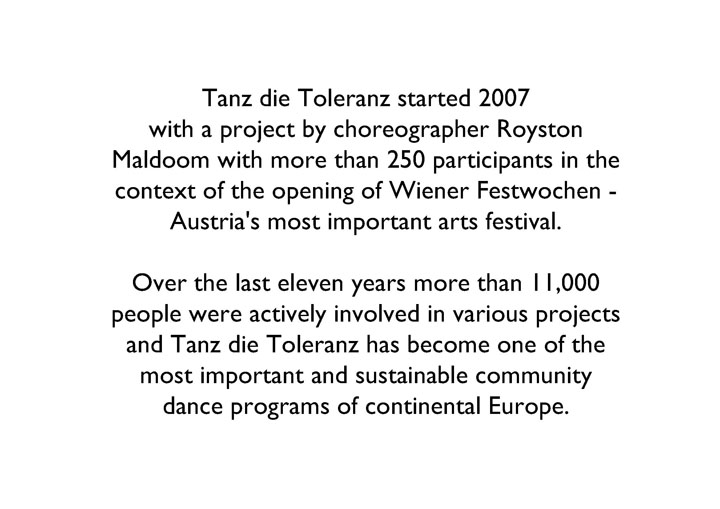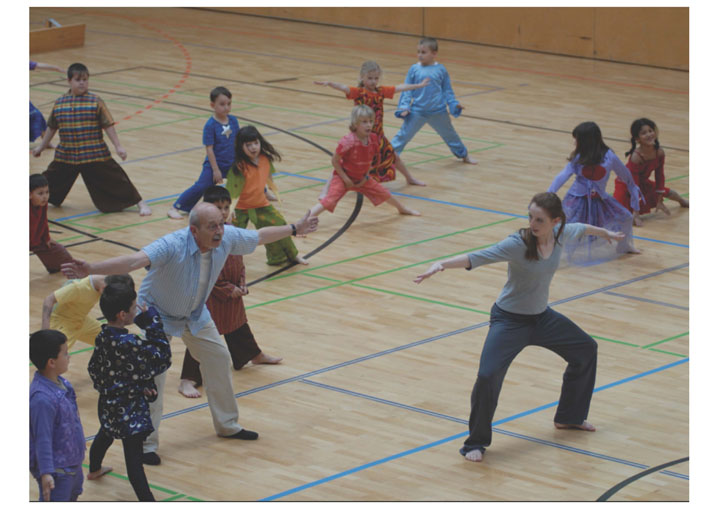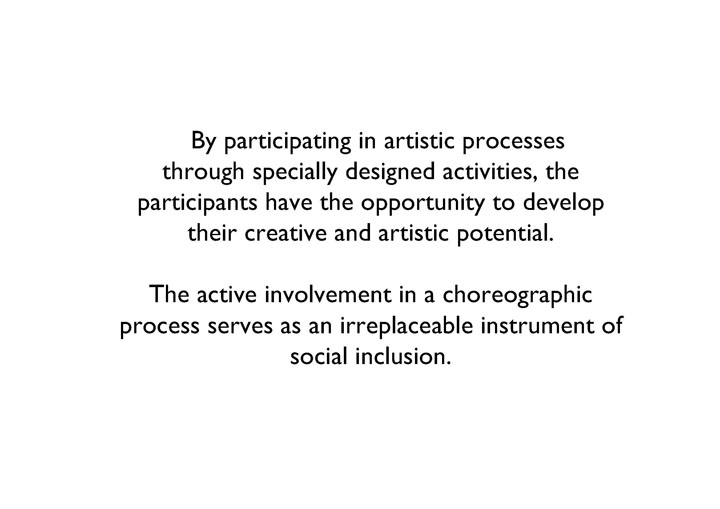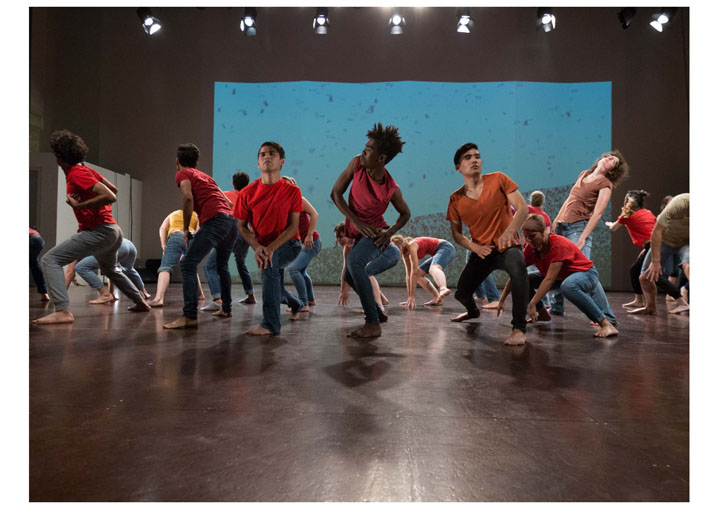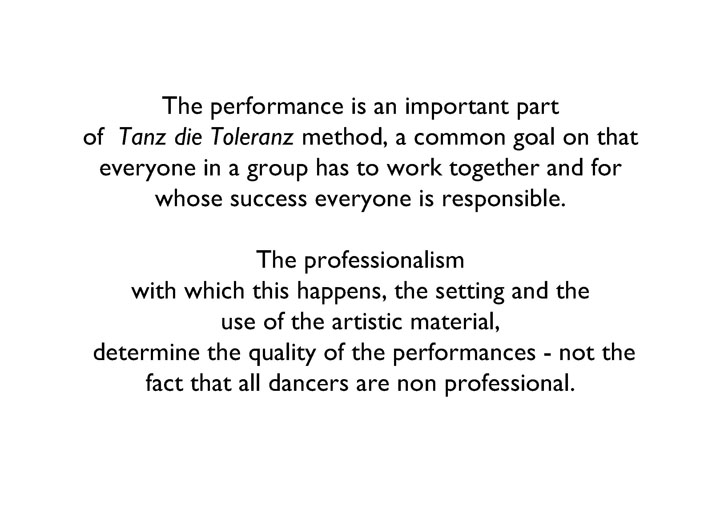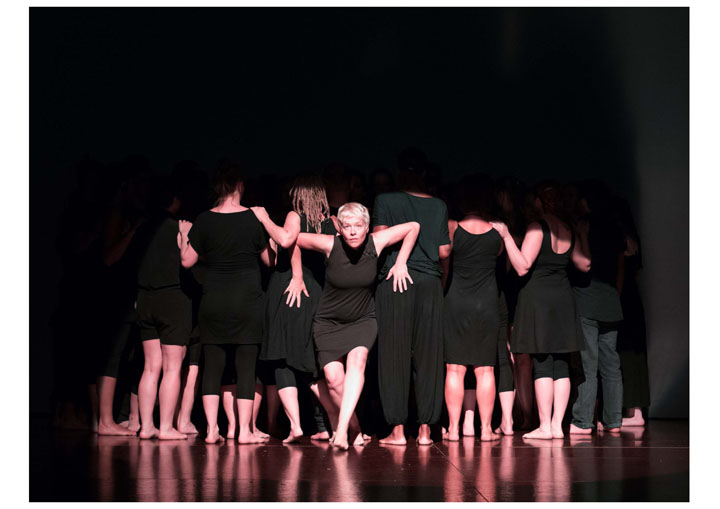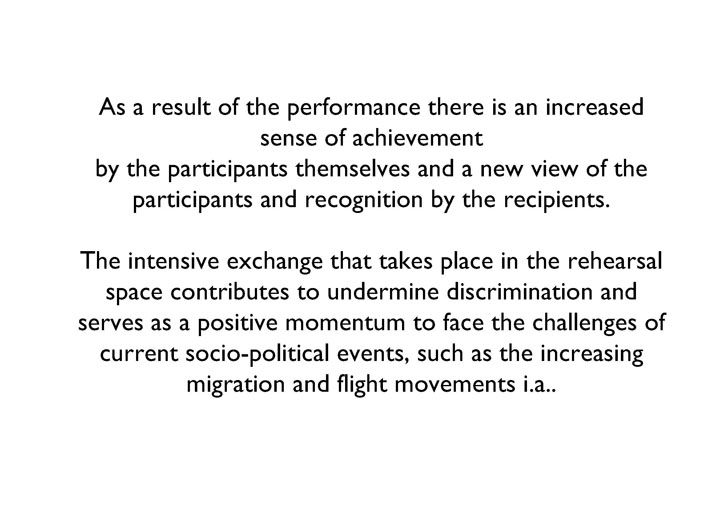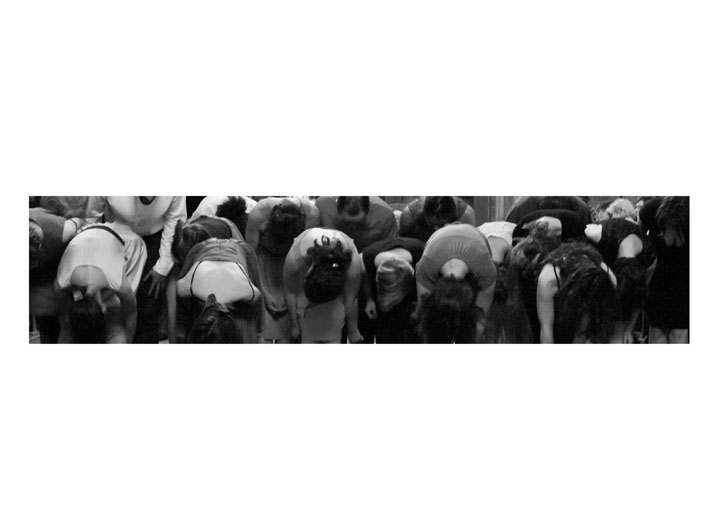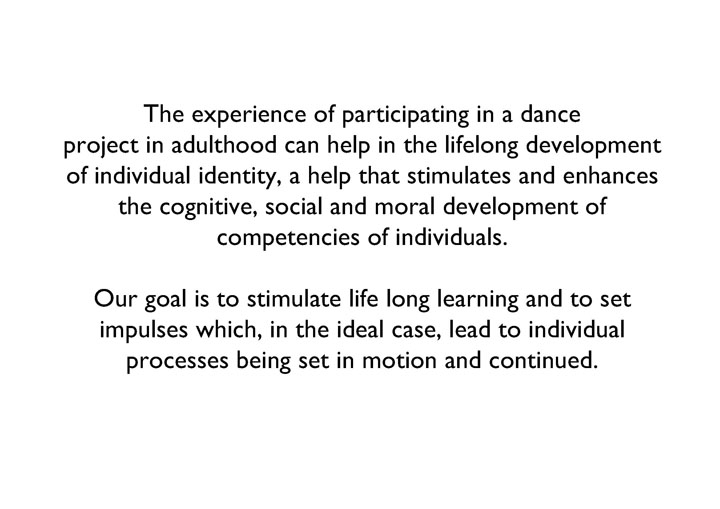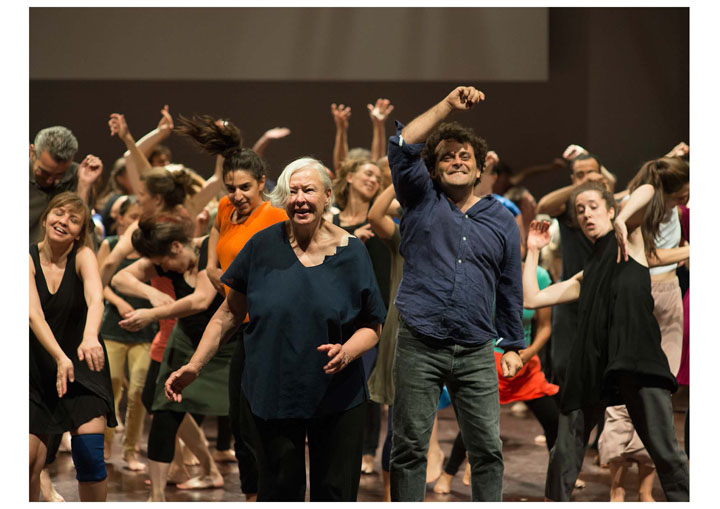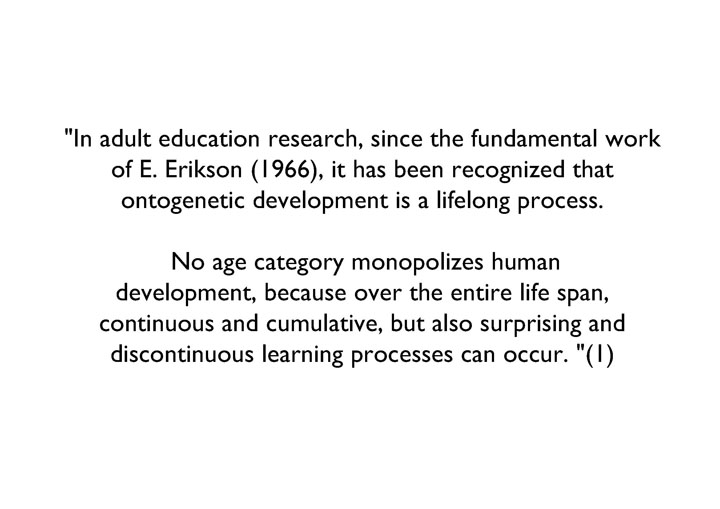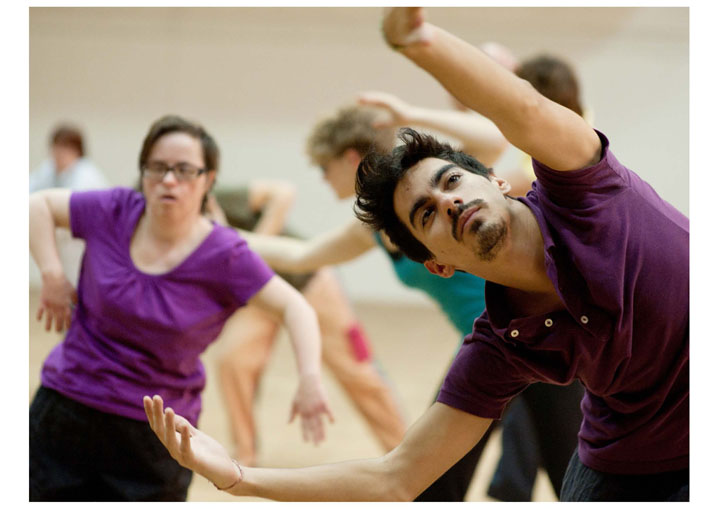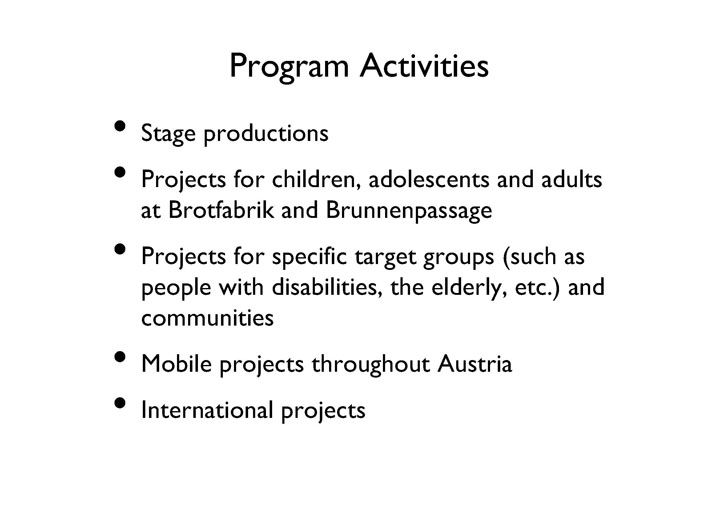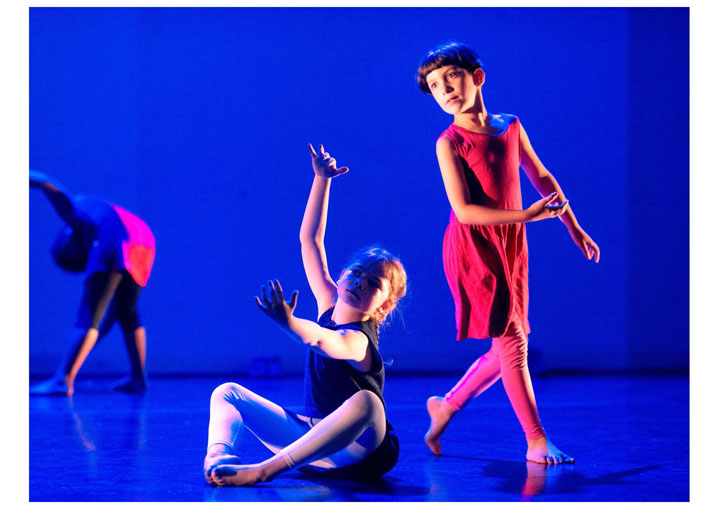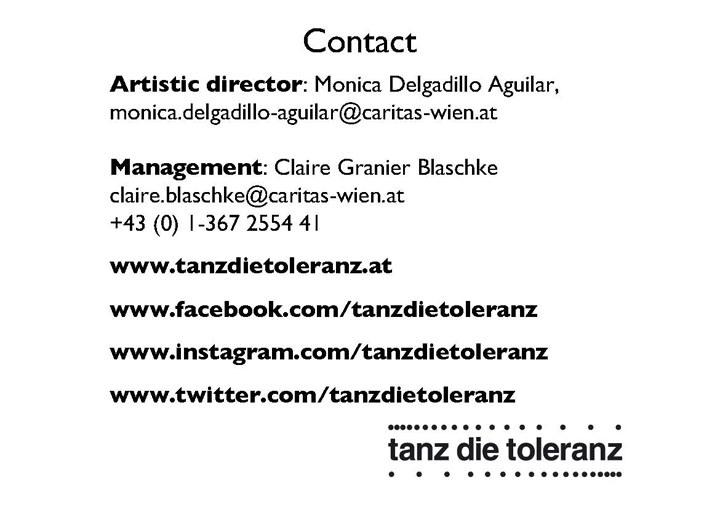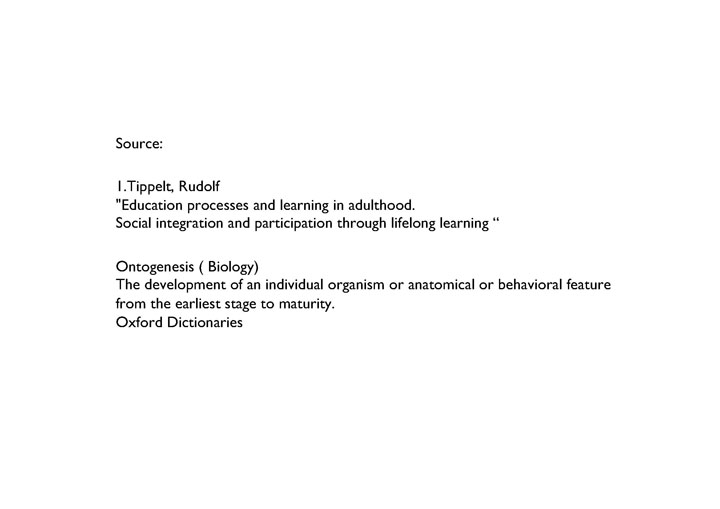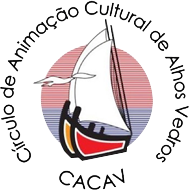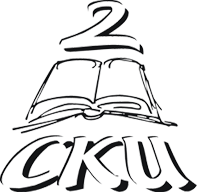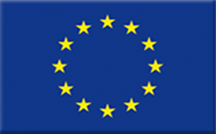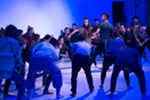 Tanz die Toleranz is a dance organisation under Caritas Vienna, a large social NGO that is active in many fields of society. Founded in 2007, Tanz die Toleranz facilitates intercultural and inclusive artistic works that enable new forms of encounter between people.
Tanz die Toleranz is a dance organisation under Caritas Vienna, a large social NGO that is active in many fields of society. Founded in 2007, Tanz die Toleranz facilitates intercultural and inclusive artistic works that enable new forms of encounter between people.
Its mission is to provide everyone with access to dance - thereby to art and culture in a broader sense - regardless of talent, experience, age, gender, skin colour, religion, ethnicity or social background. This is achieved by creating equilibrium between the social and the artistic components at both national and international levels.
By focusing on its participatory aspect, dance can be used to connect people across social, cultural and language barriers, opening up alternative possibilities for communication and a sense of belonging. The active involvement in a choreographic process serves as an irreplaceable instrument for social inclusion. The intensive exchange that takes place in the rehearsal space contributes to undermine discrimination and serves as a positive momentum to face the challenges of current socio-political events, such as the increasing migration and flight phenomena. The diversity of the projects and workshops reflect the need for differentiation in seeking to interact with varied groups. People in disadvantaged situation are particularly encouraged to partake in the implemented activities. Tanz die Toleranz currently has three main staff members: Monica Delgadillo-Aguilar (direction), Claire Granier Blaschke (general management & coordination) and Juliett Zuza (project coordination), as well as two project assistants and one volunteer.
Each year about 300 participatory projects, workshops and performances are organised, which actively involve more than 3.200 dancers. Between 3.500 and 5.000 spectators attend the various performances, which often take place at the end of the longer projects, and overall an audience of 14.000 persons is estimated to have been reached. Tanz die Toleranz does not dispose of its own dance space but runs regular and ongoing activities in two venues in decentralised districts of the city of Vienna: the Brunnenpassage and the Brotfabrik. Additionally, the so-called “mobile projects” are implemented all over the city, regions of Austria and occasionally abroad.
The activity that would be particularly relevant for this project is titled “Dance for Adults”. The rehearsals take place on a weekly basis over 3 to 5 months and are led by professional choreographers, who have specific expertise in working in the field of community dance. At the end of the semester the participants have the opportunity to share what they have learned and perform a short choreography in front of an audience. The project counts on average 50 persons per semester.
There are different kinds of skills required to implement this project. The artistic staff – the choreographers and assistant choreographers - have to demonstrate their ability to lead the group through a dance warm-up, technique exercises and improvisation scores, as well as choreographic skills. The making of a short dance piece is a final common goal that should be engaged in early in the process. The communication skills needed to lead an intercultural, socially mixed group sometimes including people with special needs are essential in order to build a common ground for people to work creatively with each other. The choreographers in charge of this project are Monica-Delgadillo-Aguilar and Romy Kolb.
Organisational skills that are specific to the coordination of inclusive dance projects are also needed to ensure an optimal running of the activities. In particular, intercultural competences as well as communication skills that are necessary to coordinate a culturally and socially mixed group of young people sometimes involving persons with disabilities.

